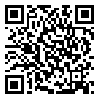1. Sheykhzade M , Mehrmohammadi M. [Designing educational software of mathematics for elementary school students from the point of view of constructivism and its effectiveness]. Journal of curriculum studies 2004; 3 (9): 32-48. [Persian]
2. Heydarzadegan AR, Marzoughi R , Jahani J. [The impact of social constructivism on academic performance of Y3 students studying science at middle schools in zahedan]. Journal of curriculum studies 2007; 2 (6): 1-19. [Persian]
3. Fardanesh H , Karami M. [Exploring an appropriate instructional model for industrial settings]. Journal of curriculum studies 2008; 3 (8): 106-131. [Persian]
4. Mansoori S, Izadi S , Nili J. [The impact of social constructivism as new approach in the higher education curriculum]. In the article collection of higher education curriculum in Iran: challenges and perspectives. Tabriz: Tabriz University 2009. [Persian]
5. Lord TR. A Comparison between Traditional and Constructivist Teaching in College Biology. Innovative Higher Education 1997; 21 (3): 197-216. [
DOI:10.1007/BF01243716]
6. Edward JF, Daniel CL. A Constructivist Approach to College Level Economic Education, Review of Radical Political Economics 2000; 32: 482-494. [
DOI:10.1016/S0486-6134(00)80038-8]
7. Herrington J, Oliver R. an Instructional Design Framework for Authentic learning Environments, Educational Technology Research and Development 2000; 48(3): 23-48. [
DOI:10.1007/BF02319856]
8. Edward JF, Daniel CL , Ford EJ. A Constructivist Learning Approach to Unemployment. Review of Radical Political Economics 2007; 39: 329-334. [
DOI:10.1177/0486613407305280]
9. Hasan K , Ilknur R. Haptic's Suitability to Constructivist learning Environment: Aspects of Teachers and Teacher Candidates. Procedia Social and Behavioral Sciences 2009; 1: 1255-1263. [
DOI:10.1016/j.sbspro.2009.01.224]
10. Mansoori S. [The investigation of High School Teachers Professional Competencies in Mazandaran Province Based on Constructivism Theory].[dissertation]. Babolsar: University of Mazandaran 2011. [Persian]
11. Mansoori S, Karami M and Abedini Baltork M. [Investigating the use of constructivism- based teaching method in higher education]. Curriculum Research2013; 2(2): 101-118. [Persian]
12. Hampton MD. Constructivism applied to psychiatric-mental health nursing: An alternative to supplement traditional clinical education. International Journal of Mental Health Nursing 2012; 21 (1): 60-68. [
DOI:10.1111/j.1447-0349.2011.00755.x]
13. Abedini Baltork M, Nasresfahani A, Nili M. [Medical faculty of professional competence based on constructivism views]. Strides Dev Med Educ 2014; 11 (1) :125-128. [Persian]
14. Windschitl M. Framing Constructivism in Practice as the Negotiation of Dilemmas: An Analysis of the Conceptual, Pedagogical, Cultural and Political Challenges Facing Teachers. Review of Educational Research 2002; 72 (2): 131-175. [
DOI:10.3102/00346543072002131]
15. Aviram M. Beyond Constructivism: Autonomy-Oriented Education. Studies in Philosophy and Education 2000; 19: 465-489. [
DOI:10.1023/A:1005267111741]
16. Raskin A. clinical skills in a technologically rich and authentic learning environment. Nurse Educ Today 2008; 27 (1): 73-9. [
DOI:10.1016/j.nedt.2006.02.010]
17. Stryven K, Dochy. F, Janssens S & Gielen S¬. On The Dynamics of Students' Approaches to learning: The Effects of The Teaching/Learning Environment. Learning and Instruction 2006; 16: 279-294. [
DOI:10.1016/j.learninstruc.2006.07.001]
18. Dekock A, Sleepers P , Voeten JM. New Learning and the Classification of Learning Environments in Secondary Education. Review of Educational Research 2004; 74(2): 141-170. [
DOI:10.3102/00346543074002141]
19. Lebow D. Constructivist Values of Instructional System Design: Five Principles toward a New Mindset. Educational Technology Research & Development (ETR&D) 1993; 41(3): 4-16. [
DOI:10.1007/BF02297354]
20. Dangel RJ, Guyton E. An Emerging Picture of Constructivist Teacher Education. The Constructivist 2004; 15 (1): 1-35.
21. Olsen DG. Constructivist Principles of learning and Teaching Methods. Education 2000; 120 (2): 347-355.
22. Saif AA. [Educational psychology (psychology of learning and instruction)]. Tehran: agah; 2002. [Persian]
23. Salvin RE. [Educational psychology: theory and practice]. Translated by Seyed-Mohammadi Y. Tehran: Ravan; 2008. [Persian]
24. Hamdy H. The fuzzy world of problem based learning. Med Teach 2008; 30 (8): 739-741. [
DOI:10.1080/01421590802345891]
25. Polyzois I, Claffey N, Mattheos N. Problem-based learning in academic health education. A systematic literaturereview. Eur J Dent Educ 2010; 14(1): 55-64. [
DOI:10.1111/j.1600-0579.2009.00593.x]
26. Woolley NN , Jarvis Y. Situated cognition and cognitive apprenticeship: A model for teaching and learning clinical skills in a technologically rich and authentic learning environment. Nurse Education Today 2007; 27 (1): 73-79. [
DOI:10.1016/j.nedt.2006.02.010]




